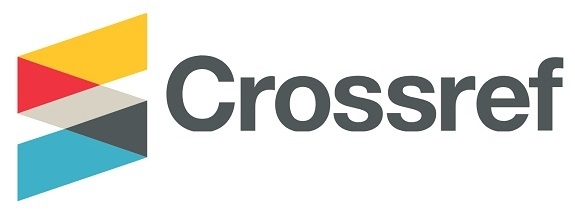THE MASTERY OF TECHNOLOGICAL PEDAGOGICAL CONTENT KNOWLEDGE (TPACK) ON PRE-SERVICE ENGLISH TEACHERS
DOI:
https://doi.org/10.36277/basataka.v7i2.571Keywords:
TPACK, Pre-Servive English TeacherAbstract
The research has objective to analyze the ability of pre-service English teachers in TPACK. TPACK is a framework that explains the integration of technology in teaching by emphasizing the interaction between three main knowledges, namely Technological Knowledge (TK), Pedagogical Knowledge (PK), and Content Knowledge (CK). This study uses qualitative research. The respondents in this study were pre-service English teacher students at FKIP Universitas HKBP Nommensen. Data were obtained through questionnaires that given to respondents by using Likert scales. Then, data was analyzed by using Miles and Huberman taht consist of three stages, namely, data reduction, displaying data, and drawing conclusion (verification) . The results of the study showed that the ability of prospective teachers in TPACK was categorized as good with an average 75,1.
References
Arini, N. M., & Wiguna, I. B. A. A. (2021). Hambatan Dan Kendala Dalam Pelaksanaan Pembelajaran Daring Pasca Covid-19. Cetta: Jurnal Ilmu Pendidikan, 4(3), 343–357. https://doi.org/10.37329/cetta.v4i3.1356
Boulton, A. (2010). The Effectiveness of Feedback in the Teaching of Grammar. Journal of Language Teaching and Research, 1(6), 838–843.
Brown, H. D. (2007). Teaching by Principles: An Interactive Approach to Language Pedagogy. Pearson Education.
Darling-Hammond, L. (2006). Constructing 21st-Century Teacher Education. Journal of Teacher Education, 57(3), 300–314.
Denzin, N. K., & Lincoln, Y. S. (2018). The Sage Handbook of Qualitative Research (5th ed.). Sage Publications.
Ertmer, P. A. (2005). Teacher Pedagogical Beliefs: The Final Frontier in Our Quest for Technology Integration? Educational Technology Research and Development, 53(4), 25–39.
Hew, K. F., & Brush, T. (2007). Integrating Technology into K-12 Teaching and Learning: Current Knowledge Gaps and Recommendations for Future Research. Educational Technology Research and Development, 55(3), 223–252.
Higgins, S., Xiao, Z., & Katsipataki, M. (2012). The Impact of Digital Technology on Learning: A Summary for the Education Endowment Foundation. Education Endowment Foundation.
Kessler, G. (2018). Technology and the Future of Language Teaching. Foreign Language Annals, 51(1), 205–218.
Koehler, M. J., & Mishra, P. (2008). Introducing TPACK. Lawrence Erlbaum Associates.
Koehler, M. J., Shin, T. S., & Mishra, P. (2017). “What Is Technological Pedagogical Content Knowledge (TPACK)?”, in Handbook of Technological Pedagogical Content Knowledge (TPACK) for Educators.
Lestari, A., & Rahayu, D. S. (2023). Technological Pedagogical Content Knowledge (TPACK): Survey Persepsi pada Mahasiswa Calon Guru IPA. PENDIPA Journal of Science Education, 7(1), 33–42. https://doi.org/10.33369/pendipa.7.1.33-42
Miles, M. B., Huberman, M. a, & Saldana, J. (2014). Drawing and Verying Conclusions. Qualitative Data Analysis: A Methods Sourcebook (3rd ed.). SAGE Publications.
Richards, J. C., & Rodgers, T. S. (2014). Approaches and Methods in Language Teaching. Cambridge University Press.
Voogt, J., & Roblin, N. P. (2012). A Comparative Analysis of 21st Century Competences and the Role of Education. Journal of Curriculum Studies, 44(3), 299–321.
Zhao, Y. (2003). What teachers should know about technology: Perspectives and practices. Education Technology Research and Development, 51(2), 1–11.
Downloads
Published
How to Cite
Issue
Section
License
Copyright (c) 2024 Nurhayati Sitorus, Rina Oktavia Simarmata, Sahlan Tampubolon, Eva Dita Yanti Simanjuntak

This work is licensed under a Creative Commons Attribution-ShareAlike 4.0 International License.






